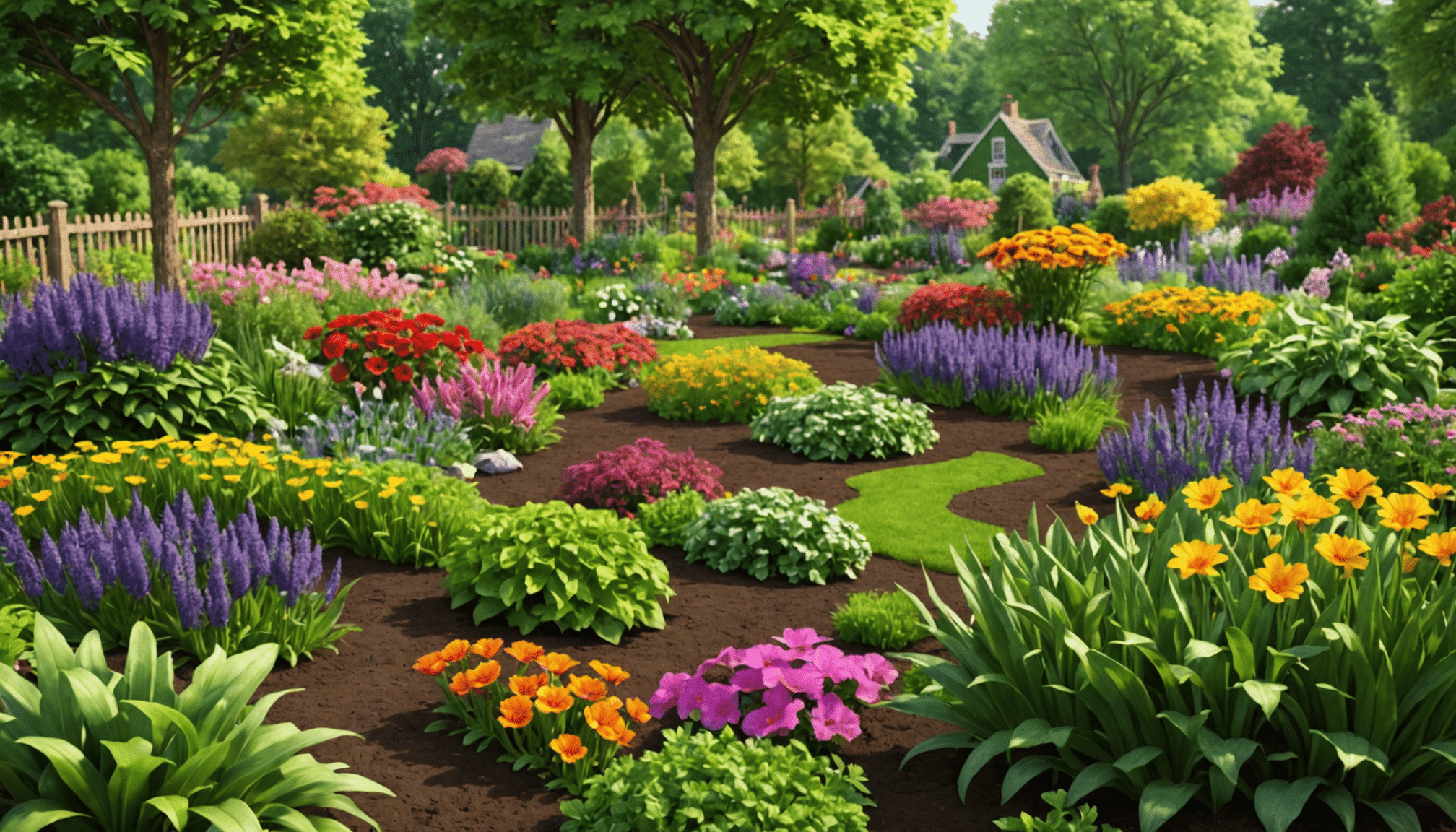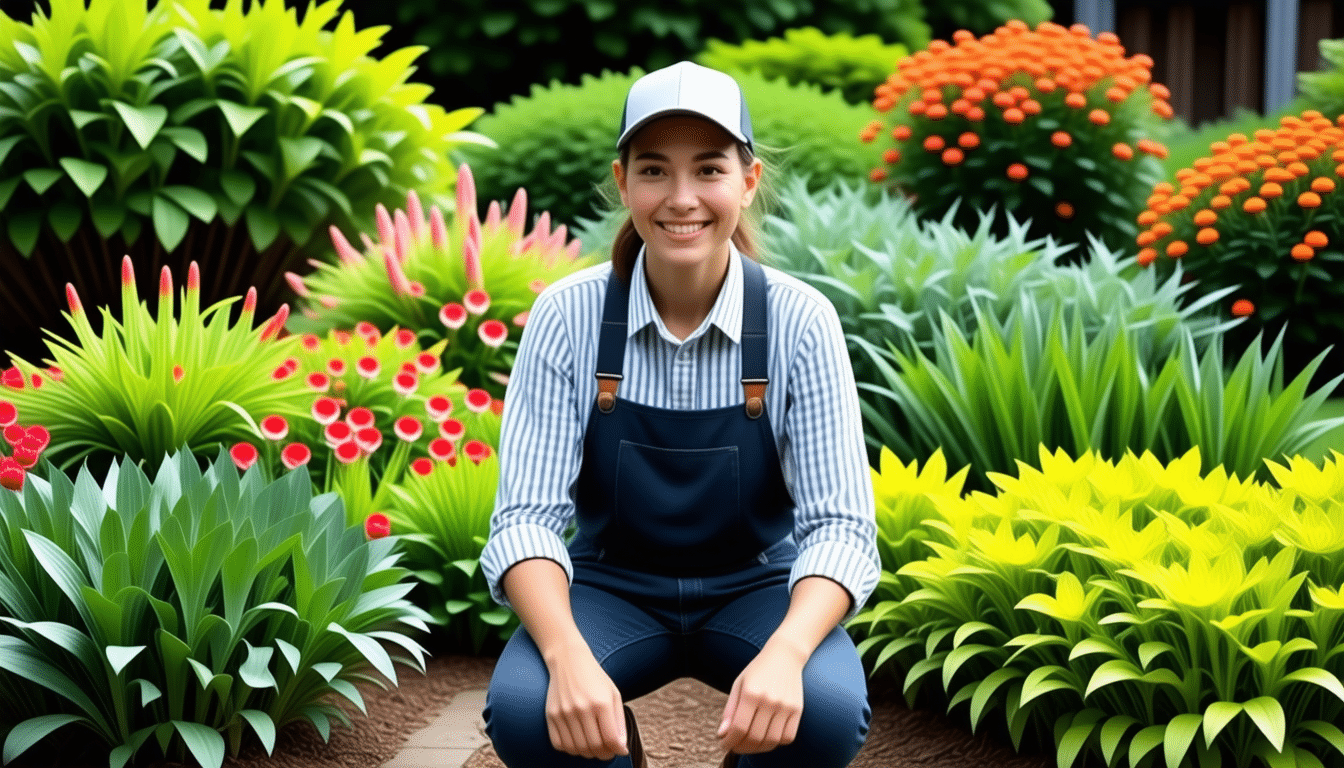🌱 Discover how to transform your garden into a thriving paradise by focusing on one essential element: soil! 🌼 Uncover the secrets of healthy soil, explore DIY hacks, and learn how to create a vibrant outdoor space that will amaze your friends and family. 🌿
When it comes to creating a thriving garden, one fundamental truth remains: soil is the cornerstone of all successful plant growth. The secret to flourishing blooms, lush greenery, and a robust outdoor space lies beneath your feet. Understanding how to build and maintain quality soil can make a world of difference in your gardening journey. By focusing on nurturing your soil, you can unlock the true potential of your garden, fostering not just the survival but the thriving of your plants. Let’s dig deeper into the magic of soil and what steps you can take to cultivate it effectively.
The Importance of Quality Soil
Soil is not just dirt; it is a complex ecosystem teeming with life. Healthy soil provides plants with essential nutrients, maintains moisture, and encourages strong root systems. When soil is rich in organic matter, it becomes a haven for beneficial microorganisms, fungi, and bacteria, all of which work harmoniously to sustain plant life. Understanding the components of quality soil—like texture, structure, and nutrient content—can empower you to take actionable steps towards cultivating the best foundation for your plants.
Testing Your Soil: A Key Step
Before planting anything, assess your soil’s health through soil testing. This process allows you to evaluate the pH levels and nutrient content, enabling you to amend it appropriately. Many garden supply stores and local cooperative extensions offer testing kits that provide insights into the necessary adjustments, ensuring your plants have the ideal environment in which to thrive. Understanding your soil’s composition is vital to creating a successful garden space.
Building Nutrient-Rich Soil
To foster the growth of healthy plants, prioritize enriching your soil with organic matter. Incorporating compost, aged manure, and mulch result in nutrient-rich soil that retains moisture while promoting drainage. As you add organic materials, you’ll not only improve soil structure but also enhance biodiversity, creating a thriving habitat for earthworms and beneficial microorganisms.
DIY Hacks to Improve Your Soil
Some effective DIY hacks can transform tired, compacted soil into a fertile breeding ground for plant growth. Techniques like adding perlite or vermiculite improve drainage, while using cover crops during the off-season can prevent soil erosion. You might also consider creating raised garden beds, which not only improve drainage but allow you to control the quality and composition of the soil more effectively.
Maintaining Soil Health Throughout the Growing Season
After establishing nutrient-rich soil, it’s essential to maintain its health and vitality throughout the growing season. Practices like crop rotation and mulching can significantly enhance soil quality. Crop rotation prevents nutrient depletion and disrupts pest cycles, while mulching helps retain moisture and suppress weeds. Regularly re-evaluating and amending your soil ensures your garden remains a flourishing sanctuary for plants.
FAQ
What is the best way to test my soil? Soil testing can be performed through local garden supply stores offering testing kits, or by sending a sample to a nearby cooperative extension office for analysis.
How can I improve my compacted soil? You can improve compacted soil by adding organic matter, using methods like tilling or aerating, and incorporating materials for better drainage.
Why is organic matter important for soil? Organic matter enhances soil structure, moisture retention, and nutrient supply while promoting beneficial organisms within the soil ecosystem.
What are some signs of unhealthy soil? Signs of unhealthy soil include poor drainage, lack of plant growth, nutrient deficiencies, and compacted earth that prevents root development.
To wrap things up, the secret to a thriving garden truly starts with the quality of your soil. By nurturing your soil and implementing practical techniques to enhance its health, you set the stage for remarkable plant growth and breathtaking blooms. Stay tuned for more articles centered on home decoration and gardening tips, and feel free to share your green adventures with others! Every garden has a story waiting to be told, and it all begins with healthy soil.





